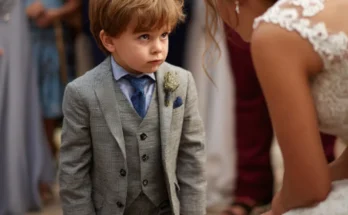From the moment I married into the family, my mother-in-law, Diane, made it clear who her favorites were—and who wasn’t. Her affection flowed freely to my husband’s sister’s children: birthday parties, sleepovers, gifts, and endless praise. But when it came to my daughter, Ava, it was as if she didn’t exist.
At first, I tried to rationalize it. Maybe Diane didn’t know how to bond with Ava. Maybe she was just awkward. But the signs piled up. Ava’s birthday was “forgotten” three years in a row. At Christmas, Diane handed out personalized gifts to the other grandchildren—while Ava received a generic coloring book with the price tag still on. When Ava proudly showed her drawing to Diane, she barely glanced at it before turning to gush over her nephew’s Lego tower.
I confronted my husband, Ryan, more than once. He’d shrug and say, “She’s old-fashioned. Don’t take it personally.” But it was personal. Ava was being excluded, and it was breaking her spirit.
The final straw came on Ava’s seventh birthday. We had planned a small party at our home. Diane was invited weeks in advance. She RSVP’d yes. But on the day of the party, she didn’t show. No call. No message. Nothing. Ava kept asking, “Is Grandma coming?” I had no answer.
Later that evening, I saw photos on social media. Diane had gone to brunch with Ryan’s sister and her kids. They were all smiling, cake in hand. Ava saw the photos too. She didn’t cry. She just went quiet. That silence haunted me.
I decided I wouldn’t let Diane’s behavior go unchecked. But I didn’t want a screaming match. I wanted clarity. Justice. A reckoning.
So I planned a family dinner—one Diane couldn’t resist. I told her it was to celebrate Ryan’s promotion. I made sure everyone would be there: his siblings, their kids, even Diane’s old bridge partner. I decorated the house, cooked Diane’s favorite meal, and set the table with care.
But I also prepared something else.
After dinner, I stood up and said I had a surprise. I handed out envelopes to each guest. Inside was a photo collage—one for each grandchild. Ava’s collage was filled with moments Diane had missed: her ballet recital, her science fair win, her handmade birthday cards. The other collages were filled with Diane’s smiling face, hugging and celebrating with the other kids.
Then I spoke.
“I made these to show how much love and attention each child has received. Some of these collages are full. Some are nearly empty. I think it’s time we talk about why.”
The room went silent. Diane looked at Ava’s collage and paled. Ryan’s sister shifted uncomfortably. No one spoke.
I continued, “Ava has noticed. She’s felt it. And I won’t let her grow up believing she’s less worthy of love.”
Diane tried to defend herself. “I didn’t mean to—she’s just quiet, I don’t connect with her the same way.”
I replied, “She’s quiet because she’s learned not to expect kindness from you. That’s not her fault.”
The conversation that followed was raw, uncomfortable, and long overdue. Diane cried. Ryan finally admitted he’d been avoiding the issue. His siblings apologized. And Ava, sitting beside me, held my hand the entire time.
That night didn’t fix everything. But it changed the dynamic. Diane began making an effort—small at first, then more consistent. She started showing up. Listening. Asking Ava about her interests. It wasn’t perfect, but it was progress.
My revenge wasn’t about hurting Diane. It was about exposing the truth and reclaiming Ava’s dignity. Sometimes, the most powerful revenge isn’t loud—it’s the quiet insistence that your child deserves better. And the courage to demand it.


